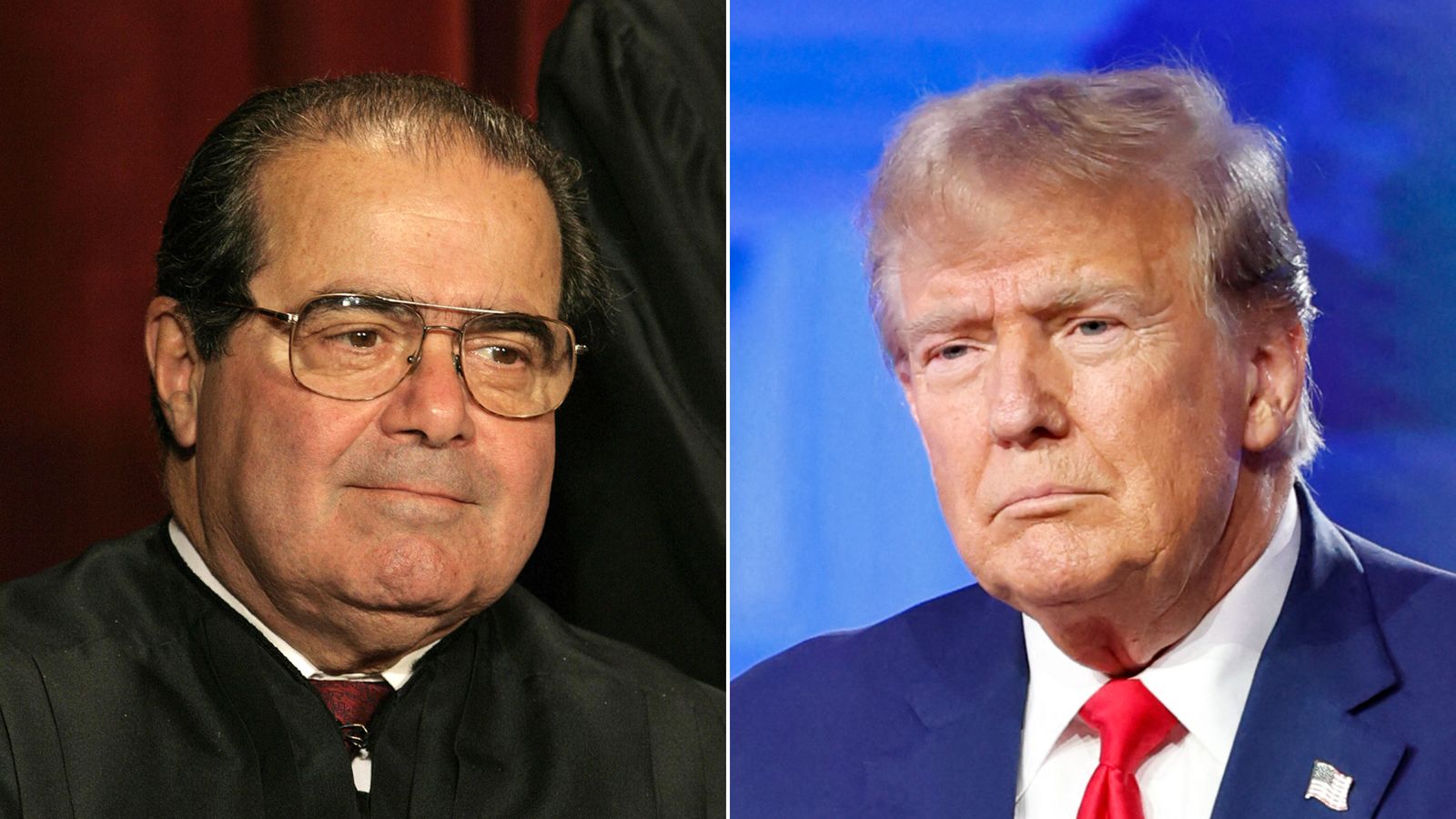Liberal factions seeking to prevent former President Donald Trump from running for office again, due to his involvement in the January 6, 2021, Capitol attack, are making their case to the Supreme Court. Surprisingly, they are drawing on the words of the late Justice Antonin Scalia and other conservative justices currently on the bench.
The groups opposing Trump are referencing a 2014 concurring opinion by Scalia, a revered figure in the conservative legal movement who passed away in 2016. They argue that this opinion supports the application of the 14th Amendment’s “insurrectionist ban” to former presidents, not just ordinary federal officials. This high-profile case will determine whether Trump can run for president again, with oral arguments scheduled for next Thursday.
On a court where conservatives hold a 6-3 supermajority, including three Trump nominees, the citation of Scalia is strategic. The advocates aim to convince the justices that they can dismiss Trump’s arguments while still adhering to conservative legal principles.
“Invoking Scalia is an attempt to cite some moral authority for one of the court’s great originalists,” said Notre Dame Law School Professor Derek Muller, an expert on the case. “They’re not just citing anyone.”
Trump asserts that presidents are not “officers” of the United States – a term used in the post-Civil War 14th Amendment – and so the ban does not apply to him. He argues that the term “officers” refers to officials appointed by the president, who take an oath to uphold the Constitution and then engage in insurrection. His opponents, including both liberal groups and several former Republican officials, reject this interpretation in a series of “friend of the court” briefs filed Wednesday.
The Constitutional Accountability Center, a progressive legal advocacy organization, argued in a brief that the “plain text demands” the amendment applies to former presidents. The group cited historical instances where “officials in every branch of government referred to the president as an officer of the United States.”
Former conservative appellate judge J. Michael Luttig, a vocal Trump critic, also referenced Scalia in a brief to the court this week. The Scalia concurrence, joined by Chief Justice John Roberts and two other conservatives, involved a dispute between the teamsters and a soda distributor. Scalia wrote that all “officers” of the United States must be appointed by the president “except where” the Constitution “provides otherwise.” Trump’s critics are basing their argument on this caveat.
However, this interpretation of Scalia has drawn strong objections from other conservatives, notably Joshua Blackman, a professor at the South Texas College of Law Houston. Blackman cautions against viewing Scalia’s concise language in the concurrence and a subsequent letter as a definitive statement of his position.
“Part of the problem with this case is people are litigating this issue in blogs and law review articles that are unreviewed,” Blackman said. “Some of these arguments have substantial problems.”
Anti-Trump advocates are also highlighting past statements from the court’s conservatives to counter the former president’s arguments. Some have pointed to an opinion Justice Neil Gorsuch wrote in 2012 when he was a judge on the 10th US Circuit Court of Appeals. Gorsuch stated that states were allowed to exclude candidates from the ballot if they were constitutionally ineligible to serve in the office they sought.
Whether these references to past statements will influence the court remains to be seen. “Many times, members of the court greatly respect each other but will disagree with what they’ve had to say,” Muller said. “But for public consumption, it certainly can be persuasive.”

